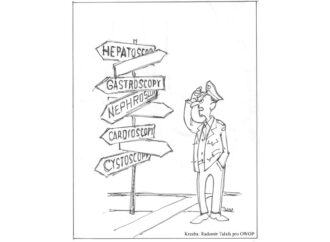 Clara Marina O´Donnell from Centre for European Reform published a nice policy brief named The EU finally opens up the European defence market. In the brief she in the great extend explains why we, members of the European Union, despite the investments to the defense industry getting little and just wasting a lot of funds. It is sad reading despite the fact that the headline is quite optimistic. The European market comes through the change, partly thanks the effort of European Defence Agency (EDA), but again the national governments and the European Commission will be those who will decide if the change is going to take a place or not. As Clara Marina O´Donnell notes:
Clara Marina O´Donnell from Centre for European Reform published a nice policy brief named The EU finally opens up the European defence market. In the brief she in the great extend explains why we, members of the European Union, despite the investments to the defense industry getting little and just wasting a lot of funds. It is sad reading despite the fact that the headline is quite optimistic. The European market comes through the change, partly thanks the effort of European Defence Agency (EDA), but again the national governments and the European Commission will be those who will decide if the change is going to take a place or not. As Clara Marina O´Donnell notes:
They [national governments] routinely exclude competition from the procurement of even the most non-sensitive defence goods – including helmets, uniforms and military catering. ‘National security’ has often been a cloak for protectionism.
It is worth to read whole policy brief. But let me highlight few findings:
1) Altogether, EU countries currently have 89 different weapons programmes, while the US, whose defence budget is more than twice the size of the EU’s defence budgets combined, has only 27.
2) Europe’s defence companies – which operate increasingly across borders – have struggled with the complicated and diverging national requirements for exports. So every time a multinational company wants to ship components from one of its plants to another one in a different member-state it has to ask for a new licence. Worse still, company staff based in different EU countries often need individual authorisations to talk over the phone. The European Commission estimates that the total cost of these barriers amount to over S3 billion a year.
3) The important development is the agreement of a code of conduct on so-called offsets. For example, governments can ask a defence company to invest in their country, including in non-defence sectors. The code, agreed in October 2008 through the EDA, is due to come into force in July 2009. EU co-operation on offsets was, until recently, inconceivable. Many offsets distort competition and are therefore illegal under EU law. Yet they are central features of the defence-industrial strategies of many EU member-states. The European Commission has so far ducked this controversial issue. The EDA has adopted a pragmatic approach. Through the code, it tries to manage offsets in order to gradually reduce them, instead of aiming at an outright ban.
4) There is already plenty of evidence that some European defence ministeries are still reluctant to open up their defence procurement to more competition.
5) The economic crisis, and the strain on public finances, could strengthen the incentive for governments to make savings through more competition, but it could just as easily persuade them to protect national industries and domestic jobs.
6) The new rules for intra-EU arms transfers will be a cultural shock for many governments. More importantly, member-states will have to trust their neighbours to ensure that their defence goods are not re-exported to undesirable destinations. That trust does not yet exist across the whole of the EU.
7) As the EU gets serious about opening its defence market, it must not forget the increasingly globalised nature of this industry. The EU should maintain the non-protectionist approach it has adopted so far, and it should also try to use some of its reforms to strengthen trade relations with the world’s largest defence market, the US.
The approach to defence industry in European national states is uneconomical – while trying to help and preserve its domestic defence industry, national governments are wasting the funds which should be use effectively for the good of the armed forces. It is false dream dreamed by the national politicians that the protectionism will save the national companies and the jobs. Opposite is true. But the pragmatic and realistic approach would be much more complicated and politically risky. And why to risk? In order to have the better trained and equipped forces and save some money? Haw-haw. It is all about the votes, stupid!









